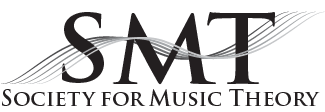Hello!
If you would like to participate in discussions, please sign in or register.
Categories
In this Discussion
- Zachary Cairns June 2015
- Amy Bauer June 2015
- Danielle Sofer July 2017
- Sergio Lasuén August 2017
Most Popular This Week
Due to changing needs and technologies, the SMT Executive Board has decided to retire SMT Discuss (effective Nov. 9, 2021). Posts will be preserved for archival purposes, but new posts and replies are no longer permitted.
1 Like
Ear training software/apps -- advice?
After many years of using the same software with my students, I've decided to look into other options, and I'd appreciate any advice the collective wisdom might have to offer. I'm HOPING for something that:
-- is web-based;
-- is usable by students across multiple platforms (laptop/smartphone/tablet);
-- can track overall student use and performance across all those platforms, with reports accessible to me;
-- costs as little as possible.
Any and all advice welcome -- thanks!
Jonathan Santore
Plymouth State University (NH)
jsantore@mail.plymouth.edu
SMT Discuss Manager: smtdiscuss@societymusictheory.org

Comments
Great question Jonathan. I am far from up on the latest, but I wanted to promote a music apprec/listening site I recently reviewed for California's open educational resources intiative (blurbed below). It was reviewed by Jeff Perry on MTO way back in 2007, so it's not new, but I just discovered it. It does not meet all of your requirements; like most of the free options of which I'm aware, it functions primarily as a supplement. Coach4technology keeps a list of music theory apps, but I would also be interested in reviews by those who've had the time to compare and contrast.
Sound Reasoning by Anthony Brandt focuses clearly on listening skills, beginning with “style-transcendent principles” that ideally advance the listener’s agency and subjective appreciation of music. The text takes a top down approach to listening designed to help listeners’ focus on developing form in music. As a "guide to listening," it features dozens of terrific examples chosen from a wide varieties of genres.
Each module presents a particular topic, illustrated with musical examples, but divided into three parts, each of which could be used individually, as they address different audiences. The first part, “How Music Makes Sense,” develops listening skills based on salient aspects of music: repetition, musical emphasis, form, expository vs. developmental passages, goal-oriented passages, temporal aspects of design, and “making music modern.” The second part separates our various technical details, beginning with harmony, while the third part, “The Language of Transformation,” synthesizes some of the skills gained earlier. One of text’s many strengths is a "listening gallery" that follows the presentation of each new topic; students are asked put new concepts into practice by interactively analyzing musical examples
Amy Bauer
UC Irvine
I'm very interested in this, too, Jonathan -- thank you for beginning this thread. I certainly don't want to hijack it by adding my own wish list...but I'll put one additional criterion here, if you don't mind: the ability to be customized by the teacher. Chord progressions, for example. I like having the ability to have the program select from a pre-programmed library, but I also would love the ability to edit that library -- delete progressions I don't want, add new progressions, etc.
I'll be following this thread with great interest. Thank you for starting it, Jonathan!
Zac Cairns
University of Missouri - St. Louis
This is something I'm also interested in exploring. Have you found anything of use, Jonathan, in the two years since posting this question?
Danielle Sofer
Maynooth University
Sam, this is a great resource. I especially like that it's available for both OS and Windows platforms. With the subscription, since the two options are for either 50 or 200 subscribers, do the student accounts close at the end of each term/year?
Thanks,
Danielle
Hello!
A beta version of a harmonic ear training software which uses rock music examples is www.appliedharmony.com. It's web-based and it's free. Specif smartphone apps are forthcoming (meanwhile it is possible run it in some platforms but sometimes it is not userfriendly).
Sergio LasuénConservatorio de Lucena